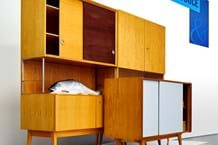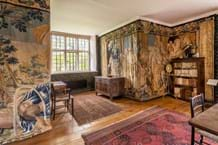Despite their arguments, however, last week the High Court ruled that Mr Clarke-Jervoise should get the painting back because of the terms of an earlier court settlement when Chubb had compensated him over the loss. In making the settlement, Chubb had failed to include any condition that they should acquire the painting if it was ever recovered.
It all started in 1994, when burglars made off with the Aelbert Cuyp landscape, then valued at £150,000, from Mr Clarke-Jervoise’s Hampshire home.
Following the burglary, he didn’t receive a penny in insurance because his alarm system – installed and operated by Chubb Electronic Security Ltd – wasn’t working properly, rendering his insurance policy invalid.
In 1995, he settled his damages claim against Chubb Electronic Security for the £125,000 plus £60,000 costs.
The painting reappeared earlier this year, when it was consigned to Sotheby’s, and Chubb argued that as they had paid out damages over its loss in 1995, it should be handed to them.
However, Judge David Phillips QC ruled in favour of Mr Clarke-Jervoise, whose counsel Grahame Aldous argued that Chubb had no right to the painting because the 1995 out-of-court compromise settlement was “full and final” even though Chubb had admitted no liability.
Handing victory to Mr Clarke-Jervoise, Judge Phillips said: “I cannot accept that the purpose of the compromise has now been subverted by discovery and recovery of the lost painting.”
However, he made the ruling “with some reluctance” that there was no “implied term” in the compromise settlement which gave Chubb a right to the painting, and he granted permission for Chubb to appeal.
Chubb were ordered to pay Mr Clarke-Jervoise’s legal costs of £42,000. Mr Clarke-Jervoise declined to comment until after the Appeal Court rules on the case at a later date.
Court hands lost work back to owner despite compensation deal
It must be the dream insurance policy: compensation for loss and the return of the goods stolen. But for security giant Chubb, it was a claim too far when wealthy art lover Michael Clarke-Jervoise demanded he be handed back a 17th century Dutch masterpiece for which they had earlier paid him £125,000 in compensation.




